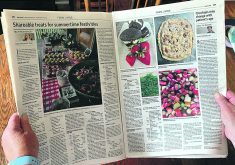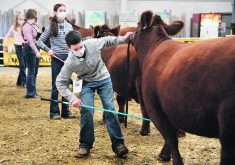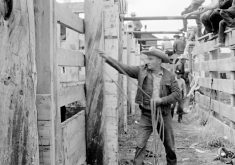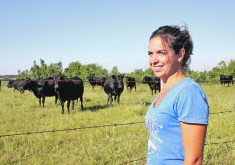When filmmaker Yung Chang followed a Chinese family through one year on an Ontario vegetable farm, he wanted a simple film about the ebbs and flows of rural life.
“I knew this was not going to be a migrant worker film. It was not going to be about that kind of strife. I was trying to simplify it and just focus it on this kind of poetic interpretation of life on a farm and certainly from the Asian perspective,” said Chang, who lives in Toronto.
Connections through his mother led the filmmaker to Forever Bountiful Farm, an 80-acre Asian-owned operation north of Toronto, to create the film Earth to Mouth, released in 2002.
Read Also

Fuel rebate rule change will affect taxes and AgriStability
The federal government recently announced updates to the fuel rebates that farmers have been receiving since 2019-20.
Chang convinced the family to document their life for a year, during which they grew Chinese vegetables for the Toronto-area restaurant and grocery store market.
With a skeleton crew of translators and cinematographers, Chang visited the farm every season from seeding through growing to harvest and through the quiet winter.
“I just recall that it was really driven by the weather changes and then checking with the son and finding out what was going on on the farm and then trying to capture each stage, essentially from earth to mouth.”
The film centres on Lau King-Fai, the mother, who follows her son, Yeung Kwan, from China to Canada in 1994. Life in China was not easy for King-Fai, who was born in 1929. Her four children were born in the early 1960s during the Cultural Revolution, Mao’s plan to preserve communism and rid the country of capitalism and Chinese traditions. The revolution left millions starving or dead, including her husband.
Chang said it wasn’t uncommon for people, including his parents, to flee China during that time.
“I am from a family of Chinese immigrants and my parents left mainland China, my mother for Taiwan, during the civil war. My father left China from Shanghai to Hong Kong and eventually to Canada. That was certainly the story with the grandmother and her past.
“Anyone who came through mainland China and is the age of the grandmother definitely experienced not only the great famine and civil war, but also the Cultural Revolution. It certainly peppered her life experience and was part of her decision to join her son and go to Canada.”
In the film, viewers learn the son was a chauffeur for a high-profile official in China. When he came to Canada, he tried several jobs but with the help of an investor was able to start growing vegetables, even though he had never farmed before.
“It’s quite a leap,” said Chang, but not uncommon for Chinese immigrants.
“I have Chinese friends whose families are farmers in Costa Rica and other places around the world. There’s certainly a perseverance that one attributes to a Chinese immigrant and they see in that a process of seeking opportunity.”
In China, farmers are the lowest class, said King-Fai, but in Canada, farming has allowed the family to make a good living and have the winter off to visit with friends and relax.
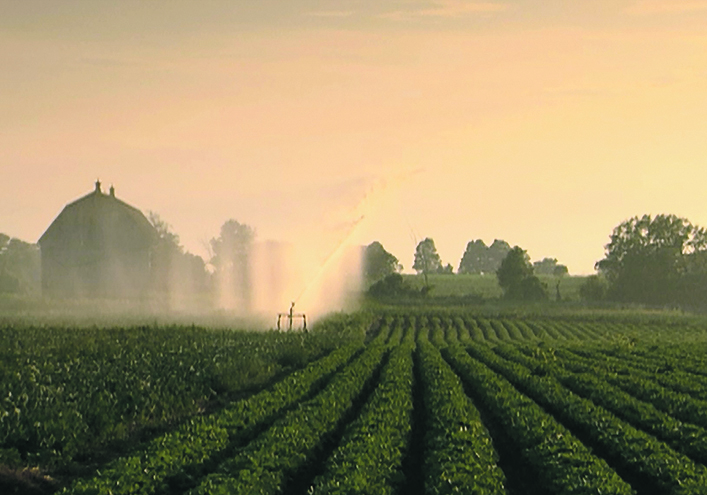
After Earth to Mouth, Chang made other films featuring agriculture including Fruit Hunters, about people obsessed about hunting for exotic fruit. In 2007 his film, Up the Yangtze, followed a peasant family who lived and farmed on the banks of the Yangtze River but were displaced by flooding for the Three Gorges hydroelectric dam.
“I followed that family for a year. I am interested in stories like that. I am interested in ordinary people.”
As well as other feature length films, Chang wrote and filmed the Heritage Minute on Canadian Football League star Norman Kwong, who was the first Chinese Canadian football player and later Alberta’s lieutenant governor.
Chang, who grew up in Montreal in the 1980s, said he had never heard of Kwong before getting the nod to write and film the Heritage Minute segment.
“I was not familiar with his story and if I had known about them, I think it would have been pretty influential for me. I didn’t have people to look up to growing up in the 1980s.”
This column is part of a year-long collaboration between The Western Producer and the National Film Board of Canada celebrating the newspaper’s 100th anniversary.





